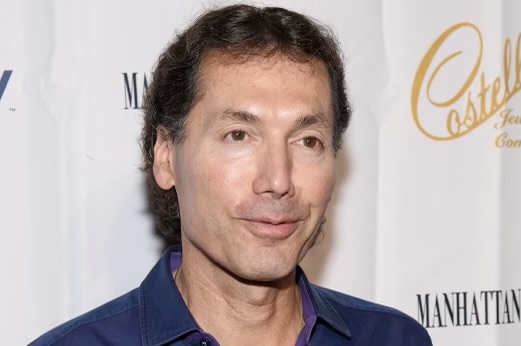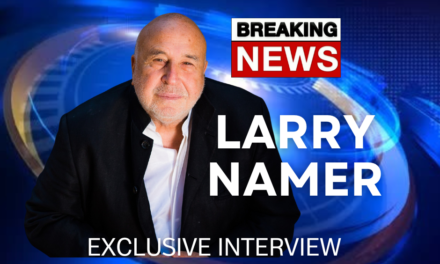| Nicholas Celozzi graduated with a BA from Marquette University from the college of communications and is fluent in French He is an award-winning Action Producer/Director/Writer who has contributed to over 30 studio/independent feature film and television projects. Celozzi is the recipient of the prestigious David Award for Outstanding Contribution to the Entertainment Industry, The Southern California Motion Picture Council Award and the Silver Scroll Award from the Academy of Science Fiction.
Celozzi produced ”Kick Boxer: Vengeance”, which was released in 2016. Directed by John Stockwell (Blue Crush) and starring Jean Claude Van Dame and Dave Bautisa (Guardians of the Galaxy). The sequel ”Kick Boxer: Retribution” opened January 2018 to critical acclaimed of which Celozzi served as Executive Producer “Retribution” starred Jean Claude Van Dame and Mike Tyson Celozzi went on to write and produce ”Shattered” based on a true story which starred Emmy Winner Ray W1se. ”Shattered” was distributed by VMI and released by Ciredigm winter of 2017. In 2021 Celozzi, wrote and directed the screenplay, ”The Class”. ‘Ire film stars Anthony Michael Hall, Debbie Gibson, Charles Gillespie, and Lyric Ross. “The Class” is considered the new contemporary “Breakfast Club”. ”The Class” will be distributed by The Exchange. Celozzi wrote and produced the award-winning featured length documentary ”Momo, The Sam Giancana Story”, released theatrically in 2014 then airing world-wide. The film won the Grand Jury Award for Best Documentary at the BelAir Film Festival, the Hollywood Reel Independent Film Festival and the Monaco/Monti Carlo Film Festival His prior documentaries include: “Champions Forever”, which sold over a million DVD’s (Mohammed Ali, Joe Frazier, lan Holmes, Ken Norton, George Forman) and ”Fishing Trawler Craftsman”. Jules: What inspired you to write The Class? Nicholas: My kids. They were in high school, and I was watching them one day and I listened to the conversations, and I realize that my kids /this generation are experiencing the same things that I experienced when I was going to high school. The same insecurities the same issues the same paranoias /everything. I was always a fan of John Hughes and how he dealt with teenagers in his films, and I really was inspired to somehow create and bring these teenagers into a contemporary reimagining and to tell that story again. Jules: Kids deal with a lot of issues today. You mentioned in an interview, “The Internet and IPhone are weapons of mass destruction.” Share your thoughts and take us through writing the script. Nicholas: In the script we’re dealing with all the contemporary issues of today /the stakes are a lot higher for these kids – they seem to have lost the ability to communicate/ everybody hides behind their phones communicates via texts these days. They are now forced to communicate with each other face-to-face /something they’re just not comfortable doing. Look, with the Internet /you wanna look for trouble- trouble is there. We’re dealing with young adolescent teenagers who are undevelooped and very impressionable and that’s what the Internet is looking for. No one talks anymore. People are looking for agendas but no one‘s communicating. These kids are now going to communicate with each other. Jules: The Class is about students who missed or failed an exam and had to do a make-up class. The exam was an acting class. No pressure there. How does this film break down barriers and teach us how to communicate? Nicholas: Because the exam is all about creating a character and using your own personal experiences within these characters – It is up to each other to push the other – to break down the barriers /the things we hide behind and let their personal experiences, feelings out. They have to use their experiences to create the character / they learn about each other‘s history: their vulnerabilities /something nobody is prepared to do. Personally, when I was in an acting class, I was petrified lol of this. Jules: There is synergy between The Class and The Breakfast Club. Tell us about connecting with Anthony Michael Hall. Nicholas: I wrote the screenplay – got it read with some of the buyers -they saw the similarities immediately between The Breakfast Cub and my script. The journey of the kids /all taking place on an afternoon-things of that nature, the overbearing principal and of course the growth of the relationships throughout the day for better and worse / but at the end of the day it was all about these kids walking out in a better position than they walked in with. I said to myself with regard to The Breakfast Club which character out of that film would’ve grown up and most likely become a teacher in a school? I said to myself Anthony Michael Hall /I thought it was a great idea – I didn’t know how he was going to feel about it but then I reached out and him and I spoke about it / he read it and he loved it and he saw the similarities to the breakfast club but he said as a script – it was very different with regard to the motivations with the characters -where they (the kids) were going throughout the day and the stakes were much higher for these kids.
Jules: Why does The Breakfast Club resonate with so many people today? Nicholas: I think kids enjoy being kids in real time /I think watching that film TBC/ everybody sees a piece of themselves in one of those characters. I did. High school is a rite of passage John Hughes was the master of letting kids be kids in real time /using their own “youth” as their strengths. We all felt as they do /insecure, vulnerable hiding behind a façade /we all do it /they did it in the film and it resonates with us. They weren’t perfect: they were all damaged – as we all are to à point and in my film as with Hughes’ they walked out better than they walked in and that’s all we can ask for in life Jules: You asked the actors on Zoom, “Why do you like this character?” What were you seeking when you asked them this question? I asked them what was it about their character that drew them to it. I wanted to see if they were just gonna talk about The Breakfast Club and working with Anthony Michael Hall and Debbie Gibson or if they were going to talk about the actual character and something that they got triggered by / with regard to the character /Why they felt they can identify with that character. I wanted to make sure they were focusing on the character and not the optics around the film. We were getting a lot of press They all answered individually, and they all answered brilliantly. Jules: How important was diversity when casting your film? Nicholas: Diversity was 100% extremely important to me. The world in the 80s no longer exists /we are a country of diversity / and I wanted that represented in the film as it exists in real life today. I believe we accomplished it. We are a multicultural country and I’m extremely happy by that. Kids today don’t see color they just see friends, people. I think it’s fantastic and maybe we should take a page out of their book Jules: What surprised you the most during filming? I wouldn’t say surprised I would say pleased. How willing these kids were to open up /how willing they were to improvise how willing they were to work as a unit. It’s funny, but I shot the script pretty much in order with the pages. Linear /So the kids grew as a unit -I didn’t jump around /they grew, and they were opening up collectively in real time – I let them lose sometimes – I just would say to them what would you do? You are 18-19 years old just do what normally a 19-year-old does /those are my expectations and they would laugh, and they had a ball, and they were fabulous. My job is to keep them moving forward and keep their continuity of their characters as they grew throughout the script and that’s what I was doing. All of them were extremely excited to work with Anthony Michael Hall and Debbie: those 2/ they were fantastic /so much they brought to this. It was a collective win for everybody. Anthony Michael threw out lot of improv and they dealt with it really really well. Jules: Why is this film so special to you? Nicholas: This film, these characters? All of them are pieces of me – some days were tough for me /I broke down a couple of times during shooting /so did some of the other actors -so did the crew- it was a fantastic experience and journey. It really was a passion project for me – One time a crewmember said to me “how does that make you feel?” and I said, “what do you mean?” She says “look” – I was three or four people on the crew had broken down -I was just so moved- I knew we had something very special Jules: What’s next? Nicholas: This is next. I’m shooting a picture with David Mamet. A true story about the assassination of Kennedy – I think the article pretty much tells at all. |













